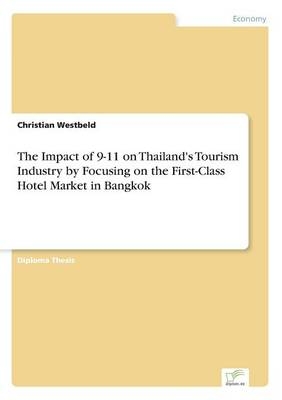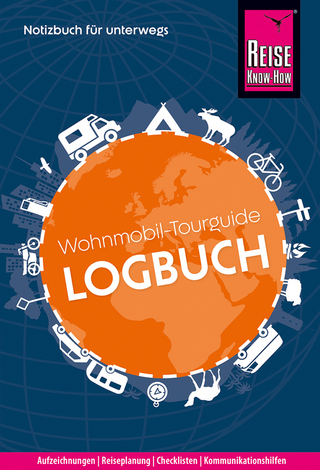
The Impact of 9-11 on Thailand's Tourism Industry by Focusing on the First-Class Hotel Market in Bangkok
Seiten
2002
diplom.de (Verlag)
978-3-8386-5907-7 (ISBN)
diplom.de (Verlag)
978-3-8386-5907-7 (ISBN)
Diploma Thesis from the year 2002 in the subject Tourism, grade: 1,8, University of Applied Sciences Wernigerode (Wirtschaftswissenschaften), language: English, abstract: Inhaltsangabe:Abstract: Sawasdee Khrap welcome to the kingdom of Thailand. A number of valid characterizations such as The Land of Smiles , The Land of Temples and Pagodas and Tropical Vacation Paradise describe Thailand at its best. In addition to these picturesque synonyms, the kingdom gained international recognition through its growing travel and hospitality industry. In 2001 Thailand once again booked the top spot as most preferred tourist destination in South East Asia as well as runner-up position in all of Asia, second only to China.
When Muslim extremists hijacked four domestic U.S. flights and cowardly carried out the terrorist attack of 9-11 on the U.S.A., the global travel sector felt the direct impact of the terrorist attacks like no other industry. From one day to the other tourists decided to stay at or close to home and hotel rooms were left vacant. As major employer and source for foreign exchange earnings, Thailand s tourism industry was no exception to the threat.
As the brutality and human tragedy of this incident will always be remembered, the following report will focus solely on the implications for the tourism and hospitality industry. In specific, the text will take an in-depth look at the development of the first class hotel market in Bangkok following the September attacks. The report looks at 14 top hotels of Bangkok and their performance from January 2000 to March 2002. Special attention lies on the seven months following the U.S.A. attacks in September 2001, whereas a full year comparison of 2000 and 2001 will also provide valid information.
The tourism and hospitality industry is a major economic driving factor not only for Thailand, but also for many other Asian nations. Therefore, the beginning of this report deals with the regional development after the terrorist attacks. This way the reader will get an understanding of the current situation in Asia and the general impact of 9-11. After a general overview of Thailand, the first class hotel market of Bangkok will be analyzed by its occupancy, ADR and RevPar development. These performance related information create the backbone of this report and support further assumptions and findings. For validity reasons, the results are then compared to two independent surveys. The fourth section is made up of the changes in travel patterns, tourism demand and strategies, followed by a comparison of the two best performing individual hotels and their advantages over competitors. A short outlook for the first-class hotel market and the survey s limitations and a conclusion complete this report.
The key aspects of this paper are backed up by extensive research on the topic by the author and a number of interviews with various hotel professionals from first-class Bangkok hotels and professors of local universities. All performance related information is obtained from the Bangkok Hotel Performance Variance Report, a document that looks at the monthly performance of the upper 39 hotels in Bangkok. Each participating hotel provides the relevant information for the internally used report.
Inhaltsverzeichnis:Table of Contents:
1.Introduction1
2.The International Tourism Industry and Thailand under the Impact of 9-112
2.1The International Tourism Industry and Armed Conflicts2
2.2The Impact of 9-11 on the International Tourism Industry3
2.2.1The International Tourism Industry Six Months after 9-115
2.2.2The Impact of 9-11 on the Asian Tourism Industry6
2.2.3The Impact of 9-11 on the Hospitality Markets in Asia9
2.3Thailand10
2.3.1Thailand and its Economic Performance11
2.3.2Thailand s Tourism Sector12
3.Bangkok and its First-Class Hotel Market16
...
When Muslim extremists hijacked four domestic U.S. flights and cowardly carried out the terrorist attack of 9-11 on the U.S.A., the global travel sector felt the direct impact of the terrorist attacks like no other industry. From one day to the other tourists decided to stay at or close to home and hotel rooms were left vacant. As major employer and source for foreign exchange earnings, Thailand s tourism industry was no exception to the threat.
As the brutality and human tragedy of this incident will always be remembered, the following report will focus solely on the implications for the tourism and hospitality industry. In specific, the text will take an in-depth look at the development of the first class hotel market in Bangkok following the September attacks. The report looks at 14 top hotels of Bangkok and their performance from January 2000 to March 2002. Special attention lies on the seven months following the U.S.A. attacks in September 2001, whereas a full year comparison of 2000 and 2001 will also provide valid information.
The tourism and hospitality industry is a major economic driving factor not only for Thailand, but also for many other Asian nations. Therefore, the beginning of this report deals with the regional development after the terrorist attacks. This way the reader will get an understanding of the current situation in Asia and the general impact of 9-11. After a general overview of Thailand, the first class hotel market of Bangkok will be analyzed by its occupancy, ADR and RevPar development. These performance related information create the backbone of this report and support further assumptions and findings. For validity reasons, the results are then compared to two independent surveys. The fourth section is made up of the changes in travel patterns, tourism demand and strategies, followed by a comparison of the two best performing individual hotels and their advantages over competitors. A short outlook for the first-class hotel market and the survey s limitations and a conclusion complete this report.
The key aspects of this paper are backed up by extensive research on the topic by the author and a number of interviews with various hotel professionals from first-class Bangkok hotels and professors of local universities. All performance related information is obtained from the Bangkok Hotel Performance Variance Report, a document that looks at the monthly performance of the upper 39 hotels in Bangkok. Each participating hotel provides the relevant information for the internally used report.
Inhaltsverzeichnis:Table of Contents:
1.Introduction1
2.The International Tourism Industry and Thailand under the Impact of 9-112
2.1The International Tourism Industry and Armed Conflicts2
2.2The Impact of 9-11 on the International Tourism Industry3
2.2.1The International Tourism Industry Six Months after 9-115
2.2.2The Impact of 9-11 on the Asian Tourism Industry6
2.2.3The Impact of 9-11 on the Hospitality Markets in Asia9
2.3Thailand10
2.3.1Thailand and its Economic Performance11
2.3.2Thailand s Tourism Sector12
3.Bangkok and its First-Class Hotel Market16
...
| Sprache | englisch |
|---|---|
| Maße | 148 x 210 mm |
| Gewicht | 184 g |
| Themenwelt | Reisen ► Kartenzubehör / Sonstiges |
| ISBN-10 | 3-8386-5907-4 / 3838659074 |
| ISBN-13 | 978-3-8386-5907-7 / 9783838659077 |
| Zustand | Neuware |
| Haben Sie eine Frage zum Produkt? |
Mehr entdecken
aus dem Bereich
aus dem Bereich
Buch | Hardcover (2024)
Reise Know-How (Verlag)
14,95 €
